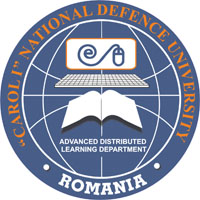USING E-LEARNING TOOLS IN THE GROWTH OF STUDENTS’ MOTIVATION REGARDING FORMAL EDUCATION
USING E-LEARNING TOOLS IN THE GROWTH OF STUDENTS’ MOTIVATION REGARDING FORMAL EDUCATION
Author(s): Sorina Chircu, Ioan NeacşuSubject(s): Education
Published by: Carol I National Defence University Publishing House
Keywords: e-learning communities; students' motivation; e-learning tools
Summary/Abstract: New technologies with a learning facilitation role in learning, allow information dissemination with reduced costs of time, both for teachers as well as for students. More and more often, students use various virtual learning communities (Moodle, Facebook Groups, Google Groups, Yahoo Groups) because of the benefits they offer in the formal act of learning. To identify these benefits, the present paper aims to answer to the following questions: What is the preferred community for disseminating information and the degree of interactivity of each tool? What is the frequency of usage of each community by students, as well as their opinions regarding ease of navigation? Do the mentioned online learning instruments grow the students’ motivation in doing their seminar/laboratory homework during a university year? To what degree students that work and implicitly have lowerattendance at courses and seminars maintain their motivation in doing their specific homework and passing the university year through participating in these virtual learning communities? In order to find out these answers, we are using as research methods the case study and the survey-based research, on a lot of 350 people from Politehnica University of Bucharest, from which 197 have the statute and experience of employees, and 153 are students with no experience as employees. In order to find out these answers, we are using as research methods the case study and the survey-based research, on a lot of 350 people from Politehnica University of Bucharest, from which 197 have the statute and experience of employees, and 153 are students with no experience as employees, some of them working part-time or not at all. The present paper therefore aims in the first part to analyse the three eLearning tools used by students from Politehnica University of Bucharest, from the viewpoint of specifics and facilities offered to them. In the second part, we propose to do a comparative analysis of the degree of efficiency of the virtual learning communities, from the perspective of students' opinions. The obtained results indicate the fact that, these virtual learning communities are useful to students, Facebook groups being the preferred virtual community by students. Also for students that work during university, these communities have strengthened to a very large and large degree their motivation for doing seminar/laboratory homework, through the fact that they were kep in contact with the passing requirements for every subject.
Journal: Conference proceedings of »eLearning and Software for Education« (eLSE)
- Issue Year: 11/2015
- Issue No: 02
- Page Range: 121-128
- Page Count: 8

